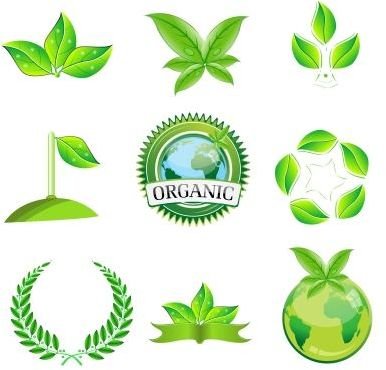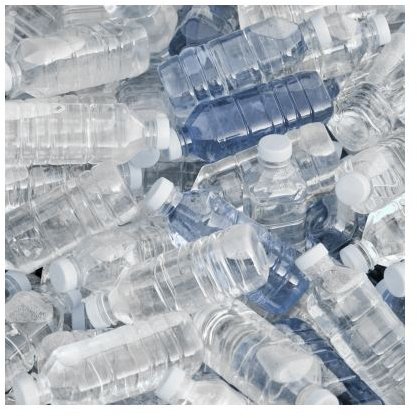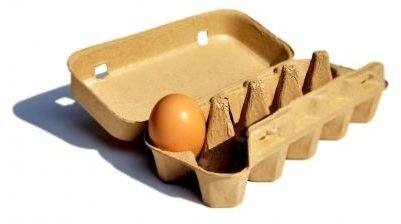Learn about Plastic Biodegradable Packaging - and Who Uses It
What Constitutes Biodegradable Packaging?
Biodegradable packaging is already manufactured by various companies in European countries and making its way to the United States. These packages are used to store and ship food, liquids and electronics. When they make their way to the landfill or compost heap, they are eaten by bacteria who in turn leave a source or organic fertilizer that is good for the environment, pets and humans.
The packaging is made entirely of plant materials that leave a zero footprint on the environment and none of the primordial ooze left behind by crude-oil based containers that upon decomposing leave behind a toxic chemical slush. An added advantage is the rate of decomposing is shortened by several hundred years.
Plastic Manufacturer Interview

In a recent interview with Carrie Morgan, a representative of Casey Plastics, we received informative answers that shed light on the biodegradability of plastics based on an added chemical named Ecopure. Casey Plastics will be manufacturing preform bottles that could soon be holding a customer’s favorite shampoo or soda pop.
What makes your containers biodegradable?
Our bottles contain the EcoPure® additive - it makes the plastic more attractive to microbes, which would not normally break down plastic because it is unattractive to them. Instead of sitting for 700+ years, the bottles biodegrade in any landfill environment in just 2-10 years.
While there are other products on the market claiming to be biodegradable, few of them have documentation to substantiate the claim, or they simply degrade instead of biodegrade. Casey Container products are one of the few products that actually biodegrade. Many other plastics may degrade - fall apart in smaller pieces - but do not actually biodegrade (completely disappear into organic material) unless they are in the perfect compost environment. Few people compost or deliver their waste to a compost facility, so most supposedly “biodegradable” products end up in a landfill, where they do not biodegrade.
How long does it take for the plastics to biodegrade?
Two to ten years, depending on the density of the plastic, and the amount of microbial activity in the landfill soil. Unlike our competitors who do not disclose information, Casey Container will be guaranteeing the specific percentage of EcoPure additive on client receipts, so they can be assured of the quality of their product.
Will the containers “leach” harmful chemicals into people’s food like containers in the past?
No - the chemical found to have leached into food is Bisphenol (BPA), which is not used in the production of our preforms or bottles. While our containers are made from certified food-grade plastics, we initially do not expect to manufacture food containers.
Where will consumers be able to purchase your finished products? Are your products only available to manufacturers who in turn supply the public?
Consumers cannot purchase our product - we manufacture and sell directly to bottle manufacturers who manufacture for other product manufacturers and retailers for their use. Initially, our preforms are most likely to be purchased by bottled water and beverage companies. Soon, we expect to branch out to selling preforms and bottles and plastic containers for lotions, sunscreen, shampoos, etc. using a variety of different types of plastic.
Does your company have a list of contracts with beverage manufacturers?
Casey Container does not yet manufacture product – we estimate it being available in late October. Because of the strong management team in place and proven viability of the additive used in our product, we already have over a dozen companies waiting to order. Products initially launching using our containers will include bottled water, beverage, liquor, hair care, skin care and sunscreen manufacturers. As they become available, consumers will be able to go to www.caseycontainer.com for a list of available products and locations.
While we would like to think ALL of our favorite companies will use Casey Container biodegradable plastics, some simply don’t want to add to the cost. The companies individually decide if they want to offer a biodegradable product and Casey Container is happy to produce them. Also, the more consumers demand a biodegradable product, the more widely-available it will become.

What information would you like to add that is valuable to consumers?
We are proud to offer a plastic that disappears in years, instead of centuries. As one of the most popular materials in use today, disposal of plastics is a very real problem that this resolves. Instead of relying on recycling, which may be a good short-term solution but perhaps not the best long-term solution, Casey Container transforms plastic into a fully biodegradable solution. It doesn’t change the structural nature of the plastics. It doesn’t require changes to the manufacturing process, it doesn’t require special equipment or expertise, it doesn’t prohibit recycling, and it works in either an open or closed landfill.
Unlike bioplastics that are cropping up, it costs only a few pennies extra per bottle depending upon gram weight and content- a small price to pay for a plastic that won’t become litter when its useful life is done.
There is much confusion about plastics, biodegradability versus degradation, and bioplastics such as the corn- and plant-based bottles. Built with a team of expert biochemists, bottling industry experts and others, Casey Container looks forward to creating a revolution in the marketplace to significantly solve the plastic pollution problems all over the globe.
Choosing Products In Biodegradable Containers
While researching the various companies and products, we found out that there is no universal marking to indicate the packaging is biodegradable because as of yet, it is not required by the government. As of today, some manufacturers may choose to include the EcoPure® logo to set their company apart from others or to identify their packaging as 100 percent biodegradable or made of plant-based materials instead of fossil fuels.
Consumers Current Choices
Molded Fiber Containers - These containers are familiar to most gardeners who purchase starter containers with small shoots or seeds. The containers are biodegradable and resemble cardboard. The sturdier versions are molded to package electronics, soaps, bottles and much more. The possibilities are endless and when the packaging makes its way to the landfill, the product leaves zero emissions and degrades into soluble organic material. One of the companies using these cardboard packages are Pure & Natural soap.
Consumer Product Packaging - Look for companies that focus on making organic products and check out their packaging. Most are committed to have a neutral impact on the environment and are just as careful with the exterior of their products as they are in choosing the ingredients that go into their health and beauty products and food staples. One such company is Sabon another one is Fresh Baby.
Plastic Containers - Nature’s Bottles are made of plant material purchased from Ingeo (Nature Works), who make the polymer and sell it to various industries that manufacture apparel, bottles, dishes and more. For a complete list of manufacturers and consumer products supplied by Nature Works see the link in our references section.
We already have plastic bags that decompose rather than degrade and it is just a matter of time before we can find them easily at every grocery store in the nation. In the meantime, shop for these on line to minimize the impact of billions of tons of crude-oil based containers that take hundreds of years to degrade, not decompose.
References
-
Images: Plastic Bottles by Keattikorn / FreeDigitalPhotos.net
Plant Materials by digitalart / FreeDigitalPhotos.net
Food Packaging by anat_tikker / FreeDigitalPhotos.net
